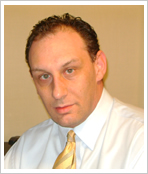 Author: Yale Bock, Y H & C Investments
Author: Yale Bock, Y H & C Investments
Covestor models: Long Term GARP, Concentrated GARP
Disclosure: Long Liberty Interactive, Iconix, Starbucks, Intuit, Quest Diagnostics
The Long Term GARP portfolio had six of its companies report their earnings in April: Starbucks (SBUX), VCA Antech (WOOF), Quest Diagnostics (DGX), Quidel (QDEL), MoneyGram International (MGI) and Unilever (UL). Other companies in the model will report during the first two weeks of May.
I made a big change in the portfolio by selling Direct TV (DTV) and adding a new holding, Iconix (ICON). I sold DTV because I did not want to have a replay of the situation that I had with AOL (AOL), in which the stock went up and then because of technological inferiority growth fell and customers left.
In buying ICONIX, shareholders of the GARP portfolio now own a company which has grown its revenues from $30 million to almost $400 million over the last 5 years. The company has a non- capital intensive business, even more so than DTV. Management knows how to use debt and to borrow smartly to buy new brands. Just as importantly, I believe that with the stock trading at less than 10 times earnings, the company’s shares represent a really good value. If the company can execute its plan to grow in emerging markets, this could really be a nice holding.
And now an update on the existing holdings:
Liberty Interactive (LINTA) is the owner of QVC, Provide Commerce, Bodybuilding.com, Evite.com, Gifts.com, 40% of Lockerz.com, 34% of Home Shopping Network, 26% of Expedia.com, 26% of TripAdvisor.com, 30% of Interval Leisure Group, and 25% of Lending Tree.
There are many strong assets here, and the company generates approximately $1.5 billion dollars per year of EBITDA, and its debt is at low rates with some of it maturing in 2029 and 2030. The business is not capital intensive and generates a great deal of free cash flow. Management has indicated over the next 3 years it will have about $5 billion of cash to buy back shares, to acquire other companies or to invest in existing businesses. (For details, see this Liberty Interactive presentation from last November.)
Liberty Interactive expanded into Italy just last year and is starting to gain traction. Revenue will likely exceed $50 million in only the second year of operations, which is consistent with the development of current large markets like Japan, the UK, and Germany. Growth internationally has been a development focus over the last few years. During the company’s latest earnings call, QVC President Mike George said he expected an announcement on that front in the next few months. Target markets include China, France, Brazil, Spain, Canada, and Mexico.
In fact, Liberty Interactive announced a joint partnership between national broadcaster China National Radio and QVC to expand into China. In addition, Liberty Interactive owns four e-commerce businesses which have over one billion dollars of revenue combined and almost $150 million of EBITDA per year. Look for management to add e-commerce businesses when they find an attractive candidate with good growth opportunities.
Another interesting development is that Liberty management has bought back almost 20% of the shares outstanding in the last three years while reducing debt dramatically, and recently upped their share buyback authorization to $1 billion.
The management team at Liberty decided to break LINTA up into two tracking stocks, and that should take place by July 4, 2012, according to the conference call. Investors currently owning LINTA will get both tracking stocks upon issuance and when they start trading. Here is a link to the announcement, and details about which assets will comprise each tracking stock. Here is a another link to the company’s most recent earnings report.
Iconix (ICON) is the owner of a broad range of well known brands like OP, Mossimo, Joe Boxer, Peanuts, and Sharper Image. The company outsources everything (except licensing rights) to the largest retailers in the world. In addition, Iconix has partnerships set up to expand and grow its businesses in the largest emerging markets in the world such as China, India, and Brazil.
The company has grown through acquisitions and by using debt wisely. It will be interesting to see how the stock does going forward. I would not be surprised if the company uses some cash to buy back shares. Management has authorization to buy up to $200 million worth of stock.
Quest Diagnostics (DGX) is the largest health care diagnostic testing company in the United States, and the company’s most recent earnings release was better than expected .
Quest announced the hiring of new chief executive officer Steve Rusckowski, who was the CEO of Phillips Healthcare.
The company generates over a billion dollars per year in cash and has a non-capital intensive business, which allows for management to search for acquisitions, make share repurchases and raise the dividend. DGX recently increased its dividend by 70% in the last quarter.
Quest is in a great spot because 75% of all decisions by health care professionals is based on tests where the company is a leader such as blood, urine, fecal, cancer, heart, and Alzheimer’s. Quest also has started operations in India. Domestically, the laboratory market is fragmented, so Quest can keep making bolt-on acquisitions to grow the company’s already leading market position.
As owner of the Quickbooks, Turbotax, Mint.com, and GoPayment businesses, Intuit (INTU) generates more than a billion dolllars per year in cash and almost all of it is free cash flow. The company is expanding its businesses into new markets such as the U.K., India, Canada, and Asia. On top of that, the company instituted a 15 cents per quarter dividend in the third quarter of 2011. The balance sheet is strong with debt and cash of about one billion each.
Intuit is another holding which has excellent growth possibilities, especially internationally. Businesses like Homestead.com (web hosting), Quickbooks, and GoPayment all should be able to slowly attract more businesses as each of them provides an entry to the Intuit platform, where additional services are usually attractive.
The company recently had an excellent earnings report as well, has also been buying back shares, and recently announced an increase in EPS and operating income guidance, as well as additional funding for buybacks.
Then there is Starbucks (SBUX), the largest coffee and tea company in the world, which is expanding in business into juice, as well as developing its presence in China. The stock had a monster move up in April and released its earnings report recently.
Liberty Media’s (LMCA) assets include Starz Media, the Atlanta Braves, 40% ownership of Sirius Satellite (SIRI), almost 20% ownership of Live Nation (LYV), 16% ownership of Barnes & Noble, and a few other non controlling positions of small public and private. Recently, Liberty Media filed a petition with the FCC to take de facto management control of satellite radio broadcaster Sirius XM Radio.
VCA Antech (WOOF), the second largest owner of animal hospitals in the United States, also owns the laboratories for diagnostic testing of animals. The most recent earnings report showed very nice growth, for the first time in a few years, and they bought a few more hospitals.
IAC Interactive (IACI) is the owner of Ask.com, Match.com, Meetic, Service Magic, Vimeo, CollegeHumor.com, and the Daily Beast, among other web sites. The company reported good growth in the last quarter, and has a strong balance sheet with nearly a billion dollars of net cash. The company has been buying back shares over the last few years, and recently instituted a 0.48 cents a year dividend.
Moneygram International (MGI) is the second largest money transfer and bill payment company behind Western Union. The position is really a private equity strategic investment as Goldman Sachs (GS) and Thomas Lee Partners own 75% of the common equity and eventually will want a much better return than where the stock price currently trades at.
Management has been growing distribution points by almost 20% per year and now has over 200,000 locations to offer services worldwide, particularly in emerging markets like Russia, Brazil, India, and the Middle East. Management has also added mobile transfer to company’s portfolio of businesses.
The stock has done very little for the last three years but the business is not capital intensive, is growing 5-8% per year, and at some point the majority owners would like to be able to monetize their positions. The company reported good earnings recently, but forward guidance was a bit tepid at only 8% revenue growth.
British Petroleum (BP) is the second biggest integrated oil company in the world, the largest explorer in the Gulf of Mexico and a major player across the globe. Once the settlement of the oil rig disaster in the Gulf of Mexico is finished, the company will be able to continue its work of providing oil to the globe.
Oil usage shows no sign of diminishing with China and India growing the number of cars on the road at rapid rates. The developed world is still 99% dependent on fossil fuels for energy, and the situation probably will not change for 30-40 years, so this is a company which is in a good situation for the future. The company recently announced it increased the dividend by 14%.
Quidel Corporation (QDEL): This health care and diagnostic company which makes influenza tests and is expanding their product line into strep throat, graves disease, and other molecular assays. Their most recent earnings report was a bit weak and the stock has sold off some.
It still should be well positioned for growth over the next few years because of a high fixed cost model with an automated manufacturing plant where incremental product yields very good margins. In addition, QDEL is adding sales force and infrastructure to support their additional product offerings.
Quidel has recently had a few diagnostic tests receive CE approval, and all of these tests should help improve their revenues significantly over the next few years, according to the press release section of its corporate website.
Unilever (UNLYF) is a massive food company based in the UK that gets over half of its nearly $50 billion dollars of sales in the emerging markets of Asia and Africa. The company pays a dividend of 3.7% and has the goal of doubling its sales by 2020. They announced good earnings recently week, and a hike in the dividend by 8%.
If you would like to open a mirroring account at Covestor.com for the Y H & C Long Term GARP Portfolio, please click here.


